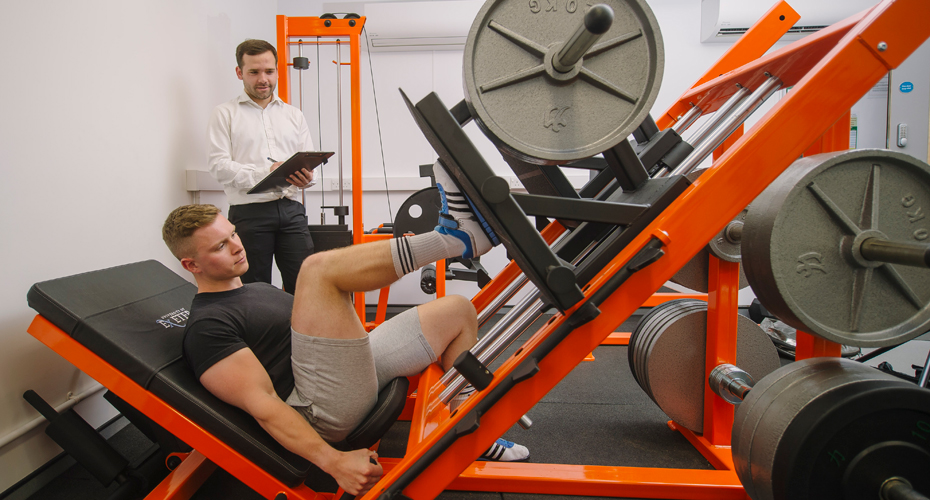Quantifying the acute and chronic effects of resistance exercise on cerebral autoregulation
Resistance exercise is a popular past time for many, may be integral to sports training, and is advocated in public health recommendations due to its positive effect on a range of health outcomes.
During the act of performing resistance exercise, blood pressure rises. This can rise to extreme levels during particularly heavy lifts or maximal exertion. This presents an autoregulatory challenge, whereby brain blood flow must be managed to prevent haemorrhage.

Resistance-trained individuals may have altered ability to regulate brain blood flow in response to pressure changes – possibly due to the repeated challenge of each training session. We wanted to understand the acute response to weighted squats.
Research team
Researchers: Oliver Smail
Supervisors: Dr Bert Bond



